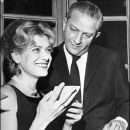I met her when she did ILYA DARLING on Broadway. She couldn't have been nicer to me. I went to Greece many years later and had a great time. I took the history tour which made it even more meaningful.
Advertisement
Advertisement
3
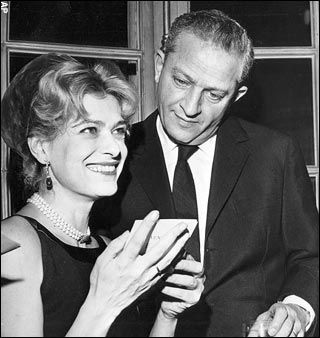
Melina Mercouri 1920 - 1994
Melina Mercouri was born on October 10, 1920 at Athens, Greece, and had a brother Spiros Spiros Mercouris. Melina Mercouri was married to Jules Dassin, and died at age 73 years old on March 6, 1994 at New York City.
Melina Mercouri
Melina Mercouri
October 10, 1920
Athens, Greece
March 6, 1994
New York City
Female
Looking for someone else
ADVERTISEMENT
BY ANCESTRY.COM
This page exists for YOU
and everyone who remembers Melina.
and everyone who remembers Melina.
Share what you know,
even ask what you wish you knew.
even ask what you wish you knew.
Invite others to do the same,
but don't worry if you can't...
but don't worry if you can't...
Someone, somewhere will find this page,
and we'll notify you when they do.
and we'll notify you when they do.
Melina Mercouri's History: 1920 - 1994
Uncover new discoveries and connections today by sharing about people & moments from yesterday.- Discover how AncientFaces works.
-
Melina Mercouri, the vivacious actress with a husky laugh who went on to become Greece's Minister of Culture, died yesterday at Memorial Sloan-Kettering Cancer Center in Manhattan. Miss Mercouri, whose greatest screen success was her role as a flamboyant prostitute in the 1960 film "Never on Sunday," was 68, her family said, although references disagree on the year of her birth. The cause was complications from lung cancer, said Patricia Turi, a hospital spokeswoman. Miss Mercouri was hospitalized in early February and underwent surgery on Feb. 23 to remove cancerous tissue, but her conditioned deteriorated on Saturday because of an infection, Ms. Turi said. Coming from a politically prominent family, the actress was a passionate anti-Fascist who lost her citizenship and property in 1967 for her aggressive opposition to the junta that held power in Athens for seven years, until 1974. She then speedily returned home and entered politics, winning election to Parliament in 1977 as a Socialist. Miss Mercouri was appointed Culture Minister in 1981 after the Socialists won a landslide victory. She served in the post until 1989, when her party lost power, and then returned when the party was re-elected in October. "Never on Sunday," the story of a nurturing trollop who refused to work more than six nights a week, established Miss Mercouri as an international star. The movie was directed by Jules Dassin, her close companion and later her husband. Mr. Dassin, the son of a New York barber, fled to Europe after being blacklisted in Hollywood in the 1950's. Mr. Dassin directed, and often wrote and produced, most of Miss Mercouri's nearly 20 other movies, including "He Who Must Die" (1957), about life overtaking a Passion play in a primitive village on Crete; Mr. Dassin co-adapted the story from the novel "The Greek Passion," by Nikos Kazantzakis. Other joint efforts included "Phaedra," a 1961 tale of a woman lusting for her stepson, and "A Dream of Passion," a 1978 variation of Medea's child-murders. Both were based on, or inspired by, ancient Greek dramas. Their other team efforts included "Topkapi," a well-regarded 1964 museum-theft caper; "10:30 P.M. Summer," a 1966 story of a descent into alcoholism, and "Promise at Dawn" (1970), from a memoir by Romain Gary about his unconventional mother. Miss Mercouri conquered Broadway in a 1967 musical adaptation of "Never on Sunday" titled "Illya Darling," prompting Walter Kerr of The New York Times to hail her as "a creature you'd be happy to take home to mother, if mother was out." Politics and Pacifism The outspoken actress and politician with a flashing smile and feline movements was a favorite of interviewers, who called her a charming, forceful and quotable woman very much in love with life. She spoke French, German and English, as well as Greek.
-
10/101920October 10, 1920BirthdateAthens, GreeceBirthplaceADVERTISEMENT BY
-
Greek.
-
Greece.
-
Of her return from exile, she remarked in 1988: "It became impossible not to interfere in politics. When you are born Greek, you are always in a state of alert about social things." She was also a pacifist, declaring in her 1971 autobiography, "I Was Born Greek," that the "quickest way to get disarmament is if John and Jean and Ivan refuse to pay one penny's tax" for weapons. Asked about feminism, she replied: "I have never been discriminated against. I have made my life as a woman, and that's not bad." Of marriage, she remarked: "If you take a European woman's husband, she has nothing. But if you take an American husband, you make the wife rich." As for love, she commented: "All any woman wants is to sleep with a man. It is simple. Life is simple." Maria Amalia Mercouri was born in Athens on Oct. 18, 1925, the daughter of a longtime Minister of the Interior and the granddaughter of a much-admired, longtime Mayor of Athens, who nicknamed her Melina, meaning honey, the usual color of her hair in later years. Her family's home was open to people from all classes, from scholars to beggars, and meals were shared by up to 100 guests. The wide-ranging contacts and conviviality made her an egalitarian and gave her a liberal education while she resolved to be an actress. Her parents opposed her acting, so, at 17, she eloped with Panayiotis Characopos, an elderly, wealthy Athenian sympathetic to her study of classical Greek tragedy at the National Theater Academy. After three years of preparation, she went on the Athens stage, won increasingly big parts and was acclaimed in the leading roles in "Mourning Becomes Electra" and "A Streetcar Named Desire." She also starred on the Paris stage and made her film debut as a doomed cabaret entertainer in "Stella," a 1955 melodrama directed by Michael Cacoyannis. A major turning point occurred at the 1956 Cannes International Film Festival, where she met Mr. Dassin. Though married to others, they immediately forged a deep personal and professional partnership. They were married a decade later. Miss Mercouri was widely praised for her Madonna-prostitute role in "He Who Must Die" and, three years later, for her hedonistic prostitute in "Never on Sunday," for which she won an award as best actress at Cannes and an Academy Award nomination. Her other films included "The Gypsy and the Gentleman" (1958), "Where the Hot Wind Blows" (1959), "The Victors" (1963), "A Man Could Get Killed" (1966), "Gaily Gaily" (1969) and "Nasty Habits" (1976). Reviewers repeatedly hailed her performances as exuberant, but sometimes extravagant and overwrought. In her political career, she represented the working-class district of Piraeus, the port of Athens, which had been the setting for "Never on Sunday." She kept an office there, meeting with constituents twice a week and discussing problems dealing with Government services and women's issues. "I like myself better now," she said in 1978. "It feels better to care about other people's interests -- to be involved." Through the 1980's, Miss Mercouri often made headlines because of her obsessive effort to regain for Greece the Elgin Marbles of the Acropolis. The sculptures were bought from the Turkish ruler of Greece in the early 1800's by a British ambassador, Lord Elgin, and later placed in the British Museum. As Minister of Culture, she also strove to revive classical Greek culture by increasing Government subsidies for the arts, building provincial libraries and pressing for the preservation of historic monuments. In exile, Miss Mercouri and her husband lived mainly in Paris. In later years, their main home was in Athens, and they had a vacation home on the Greek island of Spetsai. She is survived by her husband and by a brother, Spiros Mercouris.
-
Politics.
-
03/61994March 6, 1994Death dateUnknownNew York CityCause of deathDeath locationADVERTISEMENT BY
-
NEW YORK TIMES OBITUARY Obituaries Melina Mercouri, Actress and Politician, Is Dead By PETER B. FLINT Published: March 7, 1994 Melina Mercouri, the vivacious actress with a husky laugh who went on to become Greece's Minister of Culture, died yesterday at Memorial Sloan-Kettering Cancer Center in Manhattan. Miss Mercouri, whose greatest screen success was her role as a flamboyant prostitute in the 1960 film "Never on Sunday," was 68, her family said, although references disagree on the year of her birth. The cause was complications from lung cancer, said Patricia Turi, a hospital spokeswoman. Miss Mercouri was hospitalized in early February and underwent surgery on Feb. 23 to remove cancerous tissue, but her conditioned deteriorated on Saturday because of an infection, Ms. Turi said. Coming from a politically prominent family, the actress was a passionate anti-Fascist who lost her citizenship and property in 1967 for her aggressive opposition to the junta that held power in Athens for seven years, until 1974. She then speedily returned home and entered politics, winning election to Parliament in 1977 as a Socialist. Miss Mercouri was appointed Culture Minister in 1981 after the Socialists won a landslide victory. She served in the post until 1989, when her party lost power, and then returned when the party was re-elected in October. "Never on Sunday," the story of a nurturing trollop who refused to work more than six nights a week, established Miss Mercouri as an international star. The movie was directed by Jules Dassin, her close companion and later her husband. Mr. Dassin, the son of a New York barber, fled to Europe after being blacklisted in Hollywood in the 1950's. Mr. Dassin directed, and often wrote and produced, most of Miss Mercouri's nearly 20 other movies, including "He Who Must Die" (1957), about life overtaking a Passion play in a primitive village on Crete; Mr. Dassin co-adapted the story from the novel "The Greek Passion," by Nikos Kazantzakis. Other joint efforts included "Phaedra," a 1961 tale of a woman lusting for her stepson, and "A Dream of Passion," a 1978 variation of Medea's child-murders. Both were based on, or inspired by, ancient Greek dramas. Their other team efforts included "Topkapi," a well-regarded 1964 museum-theft caper; "10:30 P.M. Summer," a 1966 story of a descent into alcoholism, and "Promise at Dawn" (1970), from a memoir by Romain Gary about his unconventional mother. Miss Mercouri conquered Broadway in a 1967 musical adaptation of "Never on Sunday" titled "Illya Darling," prompting Walter Kerr of The New York Times to hail her as "a creature you'd be happy to take home to mother, if mother was out." Politics and Pacifism The outspoken actress and politician with a flashing smile and feline movements was a favorite of interviewers, who called her a charming, forceful and quotable woman very much in love with life. She spoke French, German and English, as well as Greek. Of her return from exile, she remarked in 1988: "It became impossible not to interfere in politics. When you are born Greek, you are always in a state of alert about social things." She was also a pacifist, declaring in her 1971 autobiography, "I Was Born Greek," that the "quickest way to get disarmament is if John and Jean and Ivan refuse to pay one penny's tax" for weapons. Asked about feminism, she replied: "I have never been discriminated against. I have made my life as a woman, and that's not bad." Of marriage, she remarked: "If you take a European woman's husband, she has nothing. But if you take an American husband, you make the wife rich." As for love, she commented: "All any woman wants is to sleep with a man. It is simple. Life is simple." Maria Amalia Mercouri was born in Athens on Oct. 18, 1925, the daughter of a longtime Minister of the Interior and the granddaughter of a much-admired, longtime Mayor of Athens, who nicknamed her Melina, meaning honey, the usual color of her hair in later years. Her family's home was open to people from all classes, from scholars to beggars, and meals were shared by up to 100 guests. The wide-ranging contacts and conviviality made her an egalitarian and gave her a liberal education while she resolved to be an actress. Her parents opposed her acting, so, at 17, she eloped with Panayiotis Characopos, an elderly, wealthy Athenian sympathetic to her study of classical Greek tragedy at the National Theater Academy. After three years of preparation, she went on the Athens stage, won increasingly big parts and was acclaimed in the leading roles in "Mourning Becomes Electra" and "A Streetcar Named Desire." She also starred on the Paris stage and made her film debut as a doomed cabaret entertainer in "Stella," a 1955 melodrama directed by Michael Cacoyannis. A major turning point occurred at the 1956 Cannes International Film Festival, where she met Mr. Dassin. Though married to others, they immediately forged a deep personal and professional partnership. They were married a decade later. Miss Mercouri was widely praised for her Madonna-prostitute role in "He Who Must Die" and, three years later, for her hedonistic prostitute in "Never on Sunday," for which she won an award as best actress at Cannes and an Academy Award nomination. Her other films included "The Gypsy and the Gentleman" (1958), "Where the Hot Wind Blows" (1959), "The Victors" (1963), "A Man Could Get Killed" (1966), "Gaily Gaily" (1969) and "Nasty Habits" (1976). Reviewers repeatedly hailed her performances as exuberant, but sometimes extravagant and overwrought. In her political career, she represented the working-class district of Piraeus, the port of Athens, which had been the setting for "Never on Sunday." She kept an office there, meeting with constituents twice a week and discussing problems dealing with Government services and women's issues. "I like myself better now," she said in 1978. "It feels better to care about other people's interests -- to be involved." Through the 1980's, Miss Mercouri often made headlines because of her obsessive effort to regain for Greece the Elgin Marbles of the Acropolis. The sculptures were bought from the Turkish ruler of Greece in the early 1800's by a British ambassador, Lord Elgin, and later placed in the British Museum. As Minister of Culture, she also strove to revive classical Greek culture by increasing Government subsidies for the arts, building provincial libraries and pressing for the preservation of historic monuments. In exile, Miss Mercouri and her husband lived mainly in Paris. In later years, their main home was in Athens, and they had a vacation home on the Greek island of Spetsai. She is survived by her husband and by a brother, Spiros Mercouris. Photos: Melina Mercouri with Jules Dassin, whom she later married, in the 1960 film "Never on Sunday." (United Artists); Melina Mercouri (Agence France-Presse, 1993)ADVERTISEMENT BYLooking for more information?
Advertisement
Advertisement
14 Memories, Stories & Photos about Melina
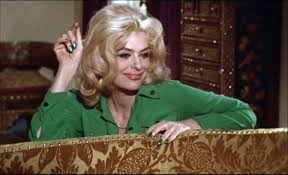
 Amanda S. Stevenson
Amanda S. Stevenson
16.8k+ favorites
07/27/2017
Melina Mercouri
A photo of Melina Mercouri
Date & Place:
Not specified or unknown.
Comments
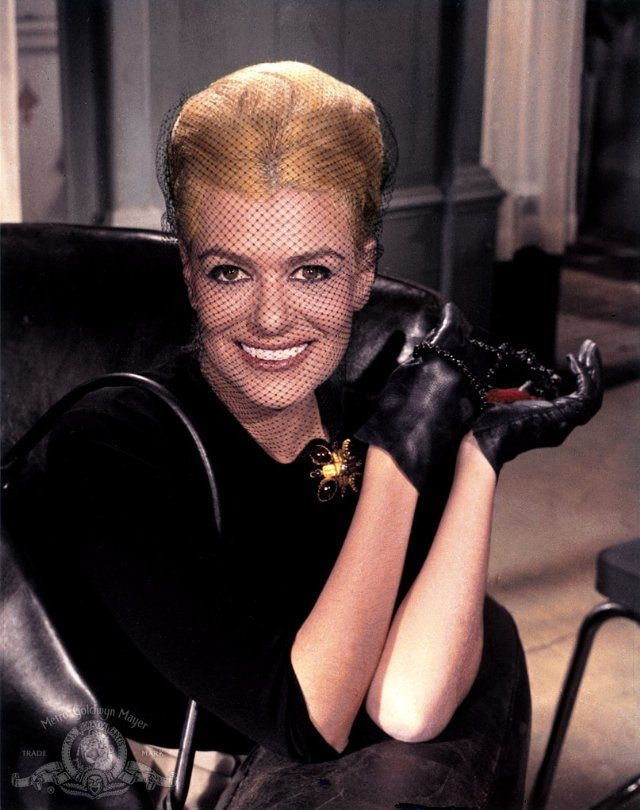
 Amanda S. Stevenson
Amanda S. Stevenson
16.8k+ favorites
07/27/2017
Melina Mercouri
A photo of Melina Mercouri, looking spectacular.
Date & Place:
Not specified or unknown.
Comments
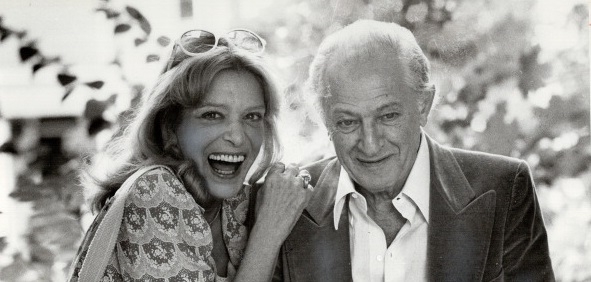
 Amanda S. Stevenson
Amanda S. Stevenson
16.8k+ favorites
07/27/2017
Melina Mercouri & Jules Dassin
A photo of Melina Mercouri & Jules Dassin.
Date & Place:
Not specified or unknown.
Comments
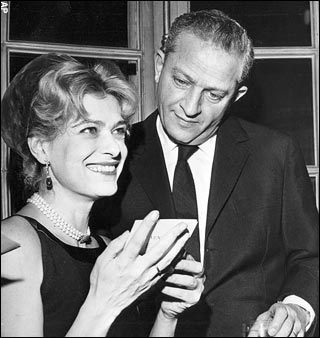
 Amanda S. Stevenson
Amanda S. Stevenson
16.8k+ favorites
07/27/2017
Melina Mercouri and Jules Dassin
A photo of Melina Mercouri with Jules Dassin. They were happily married.
Date & Place:
Not specified or unknown.
Comments
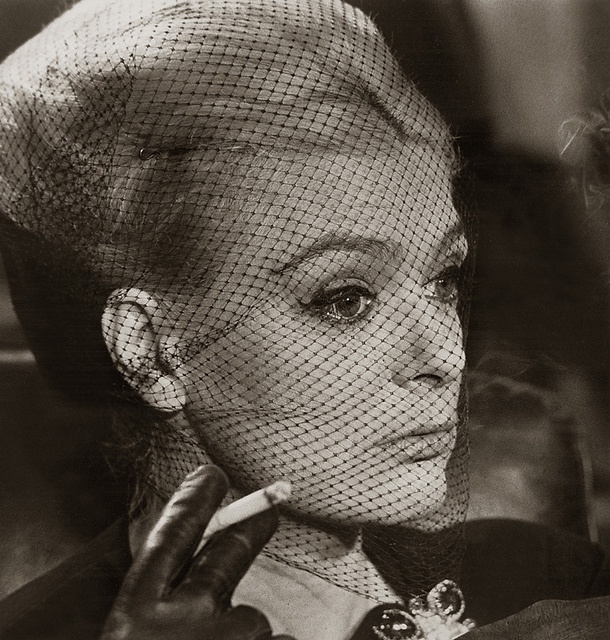
 Amanda S. Stevenson
Amanda S. Stevenson
16.8k+ favorites
07/27/2017
Melina Mercouri
A photo of Melina Mercouri
Date & Place:
Not specified or unknown.
Comments
Loading...one moment please


Family, friend, or fan...
share memories, stories,
photos, or simply leave
a comment to show
you care.
Remember the past to connect today & preserve for tomorrow.
- See how biographies work.
Be the 1st to share and we'll let you know when others do the same.
ADVERTISEMENT
BY ANCESTRY.COM
Advertisement
Melina Mercouri's Family Tree & Friends
Parent
Parent
|
Partner
Sibling
Child
|
Marriage
Advertisement
Advertisement
Advertisement
Advertisement
3 Followers & Sources

ADVERTISEMENT
BY ANCESTRY.COM
Advertisement
Other Biographies
Other Biographies
Kupperman, Herbert (Apr 12, 1915 - Sep 20, 1994)
Jacobs, William (Jun 22, 1927 - Apr 11, 1994)
Jacobs, William (Apr 8, 1905 - Oct 1981)
Cartwright, Miriam (Jun 4, 1929 - Sep 7, 1978)
Meisel, William (Nov 11, 1895 - Jul 1974)
Shipbaugh, Margaret (Jun 11, 1895 - Apr 23, 1994)
Cartwright, Steven (Mar 4, 1956 - Apr 1, 1981)
Weihe, Raymond (Nov 15, 1917 - Aug 30, 1991)
Beard, William (Dec 9, 1953 - May 16, 1994)
Vaught, James (Aug 11, 1923 - Apr 16, 1980)
Buyama, Thomas (Nov 2, 1924 - May 1985)
Osborn, Peggy (Born circa Aug 15, 1933)
Perry, Lonnie (Born Oct 5, 1961)
Hillman, Eva (Jun 24, 1882 - Jul 25, 1906)
Murcutt, William (Sep 26, 1856 - Nov 3, 1921)
Murcutt, James (Feb 10, 1830 - Sep 22, 1889)
Murcutt, Christina (Dec 4, 1823 - Oct 15, 1897)
Hooper, Leslie (1923 - 1977)
Centore, George (circa 1918 - Mar 27, 1981)
Stevenson, Jack (Jun 1, 1933 - Jun 20, 2002)
Advertisement
Advertisement
About the AncientFaces Community
